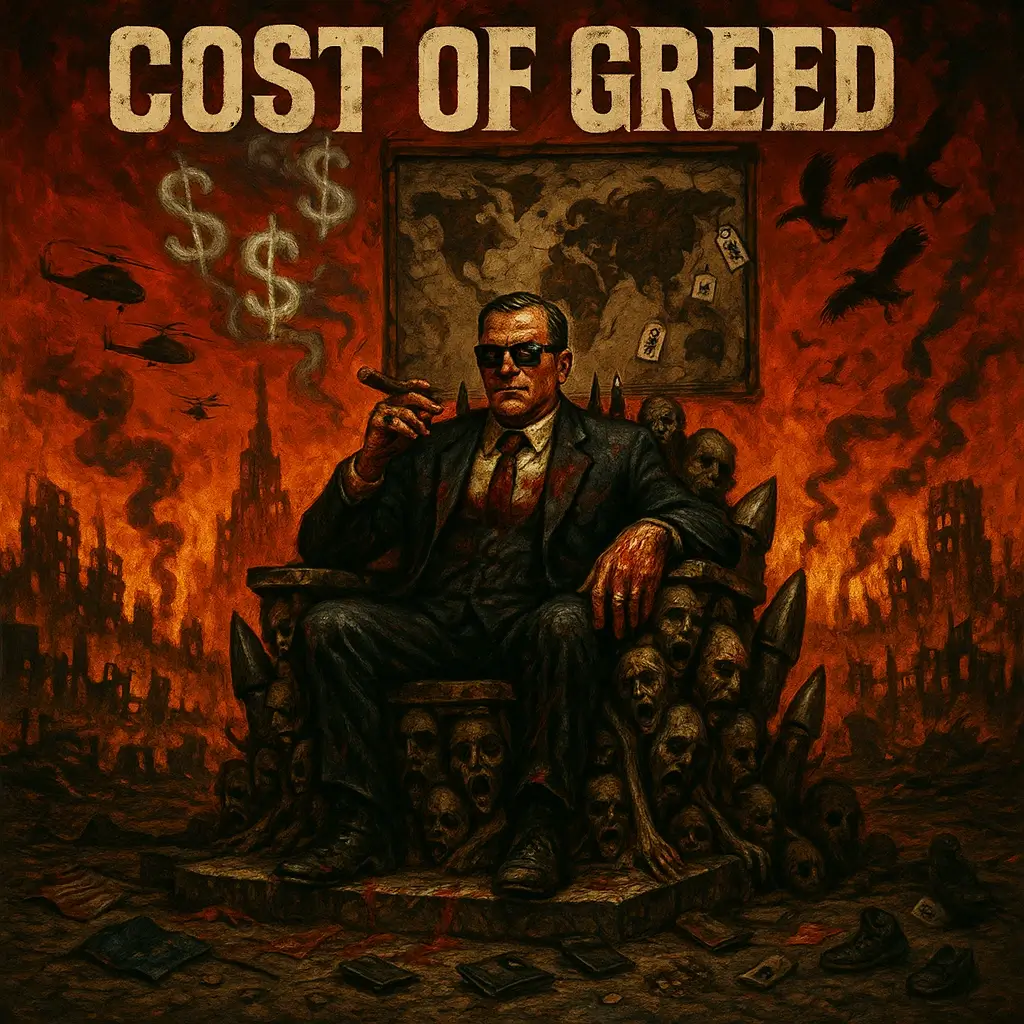When Mdou Moctar released Afrique Victime in 2021, the critical response was pretty unanimous: this was a landmark. Not just in the nebulous “best of the year” sense, but in the way you talk about a record that feels both timeless and urgent. It was a guitar album that sounded like it could summon a sandstorm of sorts; it was ferocious, featuring sprawling solos that ripped through the mix like lightning and yet it also had tender, intimate passages, moments so delicate they felt like whispered prayers. And here’s the kicker: even if you didn’t really understand a word, you knew exactly what the record was about. The urgency came through in the playing, in the voice, in the sheer weight of the performance. You didn’t need a lyric sheet to know you were hearing meditations on colonialism, injustice, survival, dignity. The music did the heavy lifting, and it translated across borders whether you wanted it to or not.
That’s the same quality that makes Sehore’s Husfikbur feel so compelling. I don’t pretend to grasp every lyrical nuance, but the commentary; that sense of reaching outward to the world at large-that is impossible to miss. Like Afrique Victime, this is music that doesn’t need to be translated word-for-word to make its meaning clear. It communicates in tone, in texture, in the way sounds are stitched together. Beneath Husfikbur’s polished surfaces and jumbled-memory collage of imagery, there’s humor, there’s critique, there’s longing. You can hear the bite when the band brushes against subjects like sex or the arms industry. You can hear the tenderness when the songs fall into dreamlike repetition. It’s the same paradox Moctar revealed: sometimes the most universal art is the most rooted in place. It speaks its truth in a language you may never fully understand, but the message lands anyway.
And here’s where the story gets interesting. Husfikbur is Sehore’s second record, following Ladencia, which casual fun fact; won a Silver Medal at the 2025 Global Music Awards. Yes, this is already award-winning music. The proof is literally in the trophy case. So, if you thought this was some scrappy, second-tier band messing around in a garage, think again. This is a group deliberately pushing into stranger territory, already recognized for it, and clearly unafraid to stir things up.
The general playbook here is to weave consonance with dissonance—something rarely done in mainstream popular music. The band takes kitsch, the kind Umberto Eco liked to analyze, and drops it into serious songcraft, like a glitter bomb detonated in a cathedral. The result is music that can sound both earnest and ridiculous in the same breath, which is part of its charm. On Husfikbur, Sehore plunge into different genres almost recklessly: ambient fragments, post-rock swells, industrial electronics, funk mutations.
Take the opener, “Bossa vieja.” It’s as if Pink Floyd had gotten really into musique concrète and then handed the guitar solos over to Mdou Moctar on a particularly inspired day. It’s expansive, messy, a little psychedelic, and yet somehow grounded by that relentless guitar. Then there’s “Poquito a poco,” which borrows a bit of The War on Drugs’ Americana haze, stretching a simple riff until it becomes widescreen. Later, “Tientos, tangos y siguiriya funk” mashes up electronica with industrial psychedelia, a title that promises chaos and delivers exactly that. And just when you think you’ve got the record pinned down, along comes “Energías renovables,” which could honestly pass as a foreign-language dub of The Black Keys’ El Camino; with bluesy swagger and stomp, but refracted through Sehore’s oddball lens. And those are just a few of the highlights.
What makes this variety hold together is intention. Sehore aren’t just genre-hopping for novelty; each style choice feels like a way to approach the same set of questions from different angles. How do you capture the absurdity of the world? How do you reflect humor and critique without flattening either? How do you create music that feels at once like a mirror and a shop-window pane, transparent and reflective all at once?
By the time you’ve cycled through all 15 tracks, what you’re left with isn’t a tidy narrative arc but a kaleidoscope of impressions. It’s not about climax or catharsis; it’s about inhabiting different tonal rooms, some with soft pillows to rest on, others with sharp edges that poke at you until you can’t ignore them. And that’s the genius: the record doesn’t demand you crack its code. It lets you sit with it, reshuffle it, listen again, and still find something new each time.
Of course, this won’t be for everyone. If you crave big choruses, instant hooks, and the dopamine rush of predictable climaxes, Husfikbur is probably going to frustrate you. But that’s also what makes it powerful. By stripping away the easy payoffs, Sehore force the listener to become part of the process. Your attention becomes the missing instrument. You’re the one completing the puzzle.
Which brings us back to Afrique Victime. What Moctar demonstrated is that you don’t need to understand every word to feel the weight of political urgency. And what Sehore show with Husfikbur is that you don’t need a perfect sequence or a single genre lane to craft something resonant. Both records, in their own ways, reject the neat packaging of “album as product.” Instead, they offer invitations: come in, sit down, listen closely, make of this what you will.
At its core, Sehore’s Husfikbur is a continuation of a project designed to stir consciences, but it’s also music made to be enjoyed quietly, privately, like a secret you stumble into. It doesn’t need to shout to make its case. It trusts you to find your own way through the sounds, to laugh at the absurdities, to cry if you need to, to let it linger. And that’s why, language barrier or not, this record resonates.
Follow Sehore
Promoted Content
About the Author

A tenured media critic known working as a ghost writer, freelance critic for publications in the US and former lead writer of Atop The Treehouse. Reviews music, film and TV shows for media aggregators.






